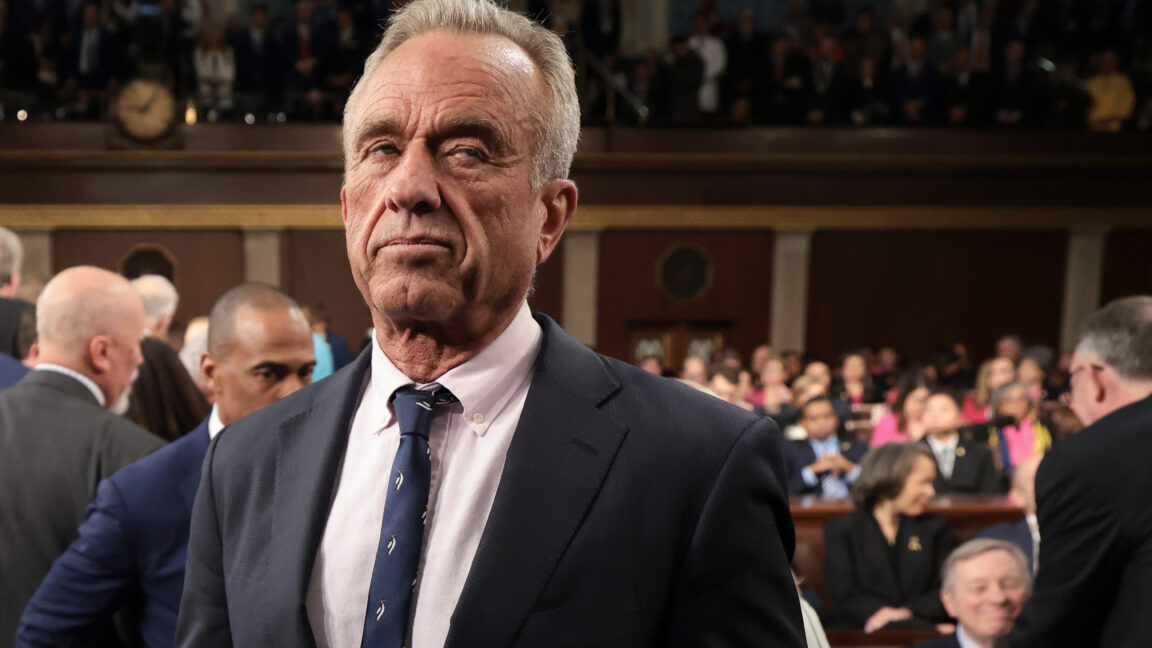
Federal support for mRNA vaccine research appears in jeopardy after KFF Health News reported Sunday that officials at the National Institutes of Health have directed scientists to remove all references to the lifesaving technology from their grant applications. All such research is now under direct scrutiny from health secretary and long-time anti-vaccine advocate Robert F. Kennedy Jr.
A senior official at the NIH's National Cancer Institute confirmed to KFF that NIH acting Director Matthew Memoli "sent an email across the NIH instructing that any grants, contracts, or collaborations involving mRNA vaccines be reported up the chain to Health and Human Services Secretary Robert F. Kennedy Jr.’s office and the White House."
Further, two independent scientists told the outlet that they were informed by NIH officials that any mention of mRNA vaccines needed to be removed from their grant applications. One, a biomedical researcher in Philadelphia, said that the NIH had "flagged our pending grant as having an mRNA vaccine component." The other, a researcher in New York who works on vaccines but not mRNA vaccines, was told that background mentions of mRNA vaccine efficacy in their previous grant applications needed to be removed from future applications.
While it remains unclear if mRNA vaccine research funding will be canceled or limited, researchers fear the worst. Last week, news broke that the NIH was canceling or limiting grant funding for research related to vaccine hesitancy—which has increased significantly in recent years, leading to declining vaccination rates and the loss of herd immunity in many communities.
Language for grant termination notices stated: "It is the policy of NIH not to prioritize research activities that focuses gaining scientific knowledge on why individuals are hesitant to be vaccinated and/or explore ways to improve vaccine interest and commitment," according to reporting from The Washington Post.
Those terminations were preceded by an email from Memoli similar to the one he sent regarding mRNA vaccines, KFF reported. "It is reasonable to assume mRNA vaccine work is next," the NCI official told the outlet.
HHS and NIH did not respond to comment requests from KFF. Ars Technica reached out to the NIH and HHS asking whether it was considering cancelling funding for mRNA vaccine research. After this story published, HHS Deputy Press Secretary Emily Hilliard provided a brief email response, writing only that: "A data call was conducted by NIH to understand what NIH is funding on mRNA vaccines. No mRNA vaccine funding has been cancelled."
